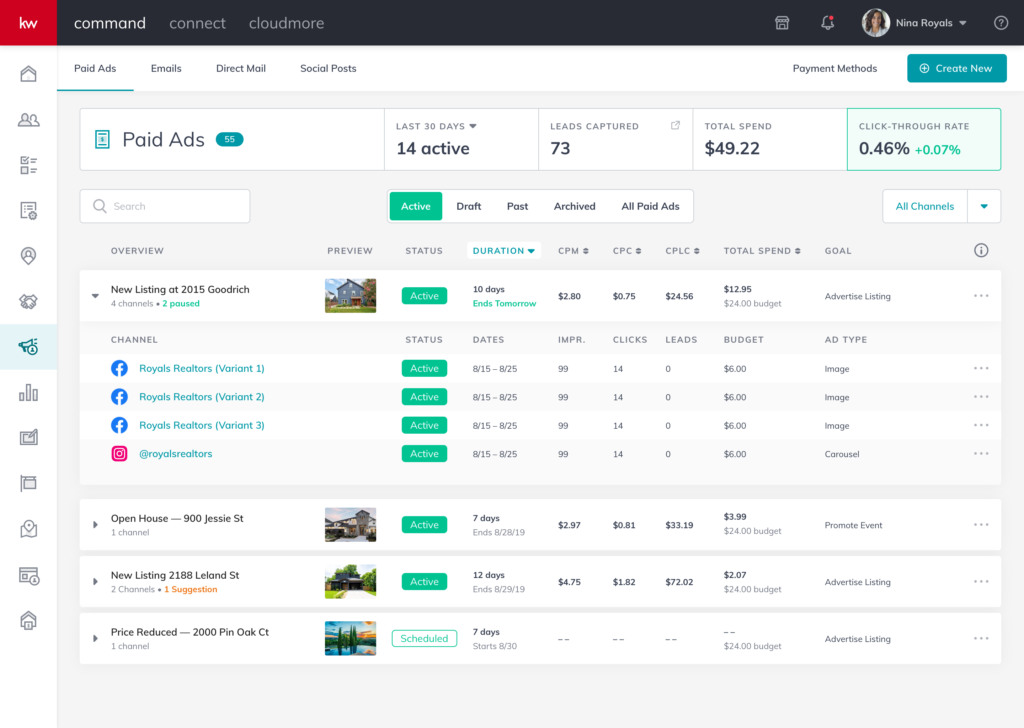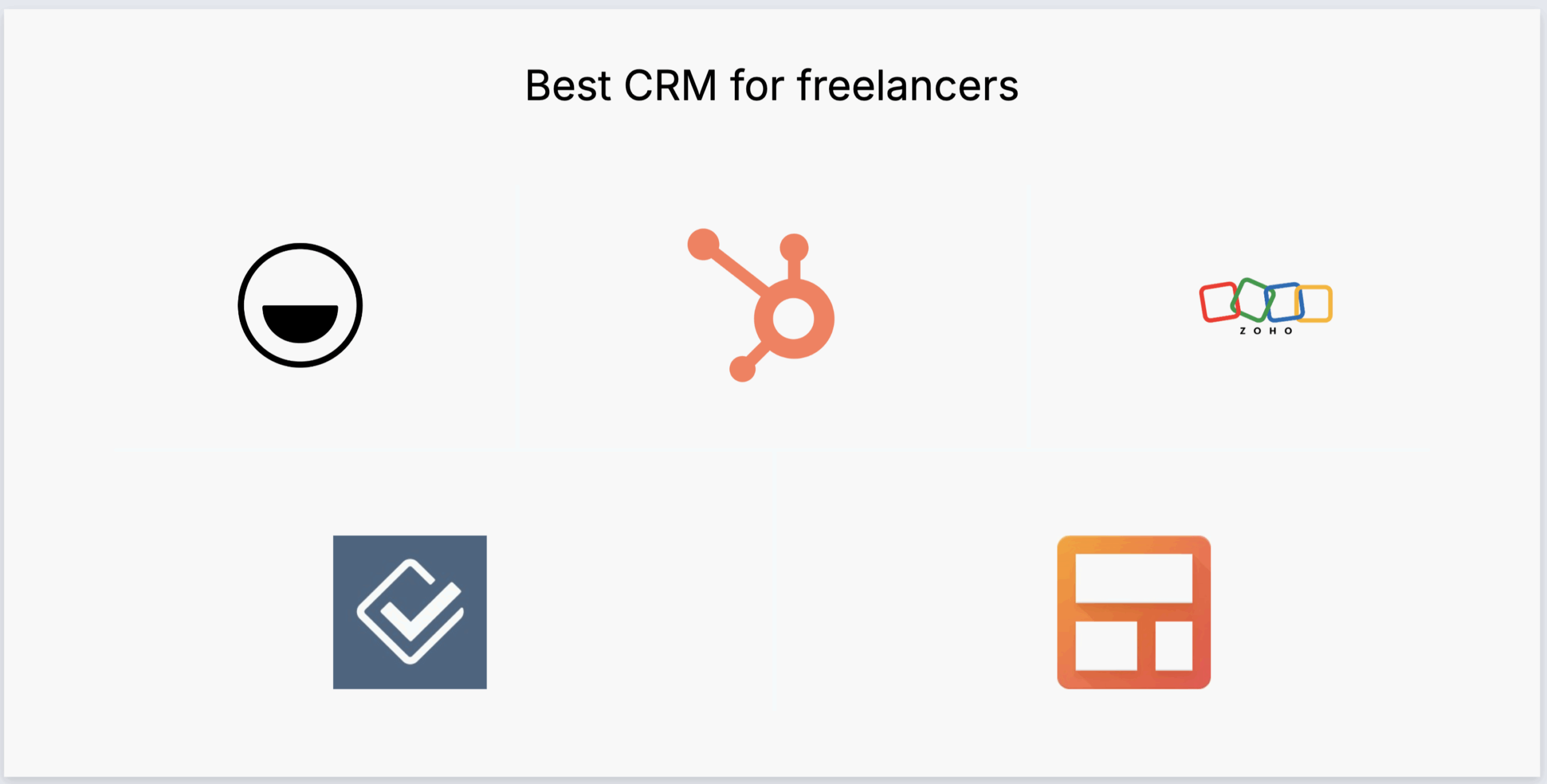In the competitive world of real estate, staying organized and maintaining strong relationships with clients is crucial for success. A Customer Relationship Management (CRM) system is a powerful tool that can help real estate agents streamline their workflow, improve communication, and ultimately drive more sales.
By leveraging a CRM, agents can efficiently manage leads, track interactions, and analyze client data to make informed decisions. As the industry continues to evolve, a CRM has become an essential asset for real estate professionals looking to stay ahead of the curve and achieve their business goals.
Why Real Estate Agents Need a CRM
In today’s competitive real estate market, staying organized and focused on clients is crucial for success. A Customer Relationship Management (CRM) system is a tool that can help real estate agents manage their contacts, leads, and transactions efficiently.
By using a CRM, agents can streamline their workflow, improve communication with clients, and ultimately increase their sales.
Key Features of a CRM for Real Estate Agents
A CRM designed for real estate agents typically includes features such as contact management, lead tracking, and transaction management. These features enable agents to keep all their client information in one place, track the progress of leads, and manage their transactions from start to finish.
With a CRM, agents can also automate routine tasks, such as follow-up emails and phone calls, freeing up more time to focus on high-value activities like closing deals.
Benefits of Using a CRM in Real Estate
The benefits of using a CRM in real estate are numerous. By having a centralized database of client information, agents can provide more personalized service to their clients, which can lead to increased client satisfaction and loyalty.
Additionally, a CRM can help agents identify new business opportunities and stay ahead of the competition. With a CRM, agents can also analyze their sales data to identify trends and areas for improvement.
Choosing the Right CRM for Your Real Estate Business
When choosing a CRM for your real estate business, there are several factors to consider. You should look for a CRM that is specifically designed for real estate agents, with features that meet your specific needs.
You should also consider the ease of use, customization options, and integration with other tools and systems you use.
| CRM Feature | Description | Benefit |
|---|---|---|
| Contact Management | Store all client information in one place | Improved Client Service |
| Lead Tracking | Monitor the progress of leads | Increased Conversions |
| Transaction Management | Manage transactions from start to finish | Streamlined Workflow |
What CRM do most realtors use?

Most realtors use a variety of CRM (Customer Relationship Management) systems, but some of the most popular ones include CRM systems specifically designed for the real estate industry.
The most widely used CRM systems among realtors include those that offer features such as contact management, lead tracking, and transaction management. Some of the key players in the real estate CRM market include RealtyJunction, LionDesk, and Follow Up Boss.
Key Features of Real Estate CRM Systems
Real estate CRM systems are designed to help realtors manage their contacts, leads, and transactions in a more efficient and organized manner.
These systems typically offer a range of features, including contact management, lead tracking, and marketing automation.
- Contact management: storing and managing contact information for clients and leads
- Lead tracking: tracking the status of leads and following up with potential clients
- Transaction management: managing the sales process and tracking the progress of transactions
Benefits of Using a Real Estate CRM
Using a real estate CRM system can bring a number of benefits to realtors, including improved organization, increased productivity, and enhanced customer service.
By having all client and lead information in one place, realtors can more easily manage their contacts and follow up with leads.
- Improved organization: having all client and lead information in one place
- Increased productivity: automating routine tasks and streamlining workflows
- Enhanced customer service: providing timely and personalized communication to clients
Popular Real Estate CRM Options
There are a number of CRM systems available that are specifically designed for the real estate industry. Some of the most popular options include RealtyJunction, LionDesk, and Follow Up Boss.
These systems offer a range of features and pricing plans to suit different needs and budgets.
- RealtyJunction: a comprehensive CRM system designed for real estate professionals
- LionDesk: a CRM system that offers a range of features, including contact management and marketing automation
- Follow Up Boss: a CRM system that is designed to help realtors manage their leads and transactions
Is there a free CRM for realtors?

There are several free CRM options available for realtors. These CRM systems are designed to help real estate professionals manage their contacts, leads, and clients more efficiently. Some popular free CRM options for realtors include HubSpot CRM, Zoho CRM, and Freshsales.
Features of Free CRM for Realtors
Free CRM for realtors typically offer a range of features that can help streamline their workflow and improve their sales process. These features can include contact management, lead tracking, and sales pipeline management.
Some free CRM options may also offer additional features such as email marketing automation and reporting tools.
- Contact management: storing and organizing contact information for leads and clients
- Lead tracking: monitoring the progress of leads through the sales pipeline
- Sales pipeline management: visualizing the sales process and identifying areas for improvement
Benefits of Using a Free CRM for Realtors
Using a free CRM can bring several benefits to realtors, including improved organization and productivity, enhanced customer service, and increased sales. By having all their contacts and leads in one place, realtors can more easily manage their sales pipeline and follow up with leads.
This can help to build stronger relationships with clients and increase the chances of closing deals.
- Improved organization: having all contacts and leads in one place
- Enhanced customer service: being able to quickly respond to client inquiries
- Increased sales: identifying new opportunities and following up with leads
Things to Consider When Choosing a Free CRM for Realtors
When choosing a free CRM, realtors should consider several factors, including the features offered, ease of use, and scalability. It’s also important to consider the level of customer support provided by the CRM vendor, as well as any potential costs or limitations associated with the free version.
- Ease of use: how user-friendly is the CRM interface
- Scalability: can the CRM grow with the realtor’s business
- Customer support: what level of support is provided by the CRM vendor
Which CRM does Keller Williams use?

Keller Williams uses a customized version of the CRM (Customer Relationship Management) system called KW Command. This system is designed to help agents manage their contacts, leads, and clients more effectively.
Key Features of KW Command
KW Command is a robust CRM that offers a range of features to support the business needs of Keller Williams agents. Some of the key features include contact management, lead tracking, and marketing automation.
The system allows agents to:
- Organize their contacts and clients in one place
- Track interactions and communications with their clients
- Automate routine tasks and follow-ups
Benefits of Using KW Command
By using KW Command, Keller Williams agents can enjoy several benefits that enhance their productivity and customer engagement. The CRM helps agents stay organized, focused, and responsive to their clients’ needs.
Some of the benefits include:
- Improved contact management and data accuracy
- Enhanced lead tracking and conversion rates
- Increased efficiency and reduced administrative tasks
Integration with Other Tools
KW Command is designed to integrate seamlessly with other tools and platforms used by Keller Williams agents. This integration enables a streamlined workflow and maximizes the effectiveness of the CRM.
Some of the integrations include:
- Integration with Keller Williams’ proprietary technology platforms
- Compatibility with third-party marketing and lead generation tools
- Syncing with other business applications used by agents
What is the best CRM for single agents?

The best CRM for single agents is a matter of debate, as it depends on various factors such as the agent’s specific needs, budget, and preferences. However, some popular CRM options for single agents include HubSpot CRM, Zoho CRM, and Pipedrive.
Key Features to Consider
When choosing a CRM as a single agent, it’s essential to consider the features that will help you manage your contacts, leads, and sales pipeline efficiently. Some key features to look for include contact management, lead tracking, and sales automation.
- Contact management: the ability to store and organize contact information, interactions, and history
- Lead tracking: the ability to track leads and monitor their progress through the sales pipeline
- Sales automation: the ability to automate repetitive tasks, such as follow-up emails and reminders
Benefits for Single Agents
Using a CRM as a single agent can have several benefits, including increased productivity, improved organization, and enhanced customer relationships. By having a centralized platform to manage contacts and leads, single agents can stay on top of their sales pipeline and respond to opportunities more quickly.
- Increased productivity: by automating routine tasks and having a clear view of the sales pipeline
- Improved organization: by having a single platform to manage all contacts and leads
- Enhanced customer relationships: by having a more personalized and responsive approach to customer interactions
Popular CRM Options
Some popular CRM options for single agents include cloud-based solutions that offer flexibility and scalability. These solutions often provide a range of features, including contact management, lead tracking, and sales automation, as well as integrations with other tools and services.
- HubSpot CRM: a free CRM that offers contact management, lead tracking, and sales automation
- Zoho CRM: a cloud-based CRM that offers a range of features, including contact management and sales automation
- Pipedrive: a CRM that focuses on sales pipeline management and offers features such as lead tracking and sales forecasting
Frequently Asked Questions
What is CRM and why do real estate agents need it?
A Customer Relationship Management (CRM) system is a tool that helps manage interactions with clients and potential clients. Real estate agents need a CRM to organize contacts, track leads, and automate tasks, allowing them to focus on closing deals and growing their business. It streamlines communication and enhances customer service.
How does CRM benefit real estate agents in their daily operations?
CRM benefits real estate agents by keeping all client information in one place, making it easily accessible. It helps in tracking client interactions, scheduling follow-ups, and analyzing sales performance. This results in more efficient time management and better customer relationships, ultimately leading to increased sales and business growth.
Can CRM integrate with other tools used by real estate agents?
Yes, most CRM systems designed for real estate agents can integrate with other tools such as email marketing software, social media platforms, and MLS listings. This integration enables seamless data transfer and synchronization, reducing manual data entry and enhancing overall productivity.
Is CRM difficult to implement and use for real estate agents?
Implementing a CRM is relatively straightforward, with many providers offering user-friendly interfaces and support. Real estate agents can typically start using a CRM quickly, with minimal training required. Ongoing support is also available to ensure that agents can maximize the benefits of their CRM system.


